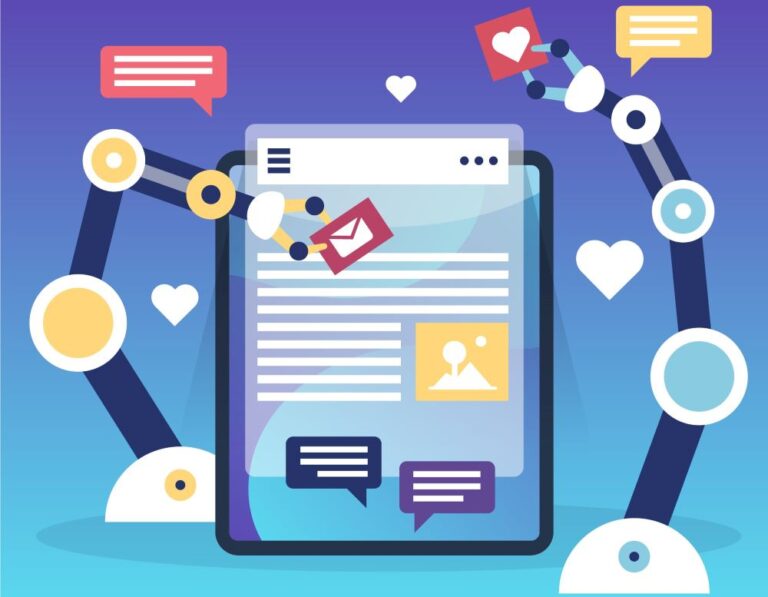This year, Google Marketing Live (GML) was on Tuesday, May 21, 2024. Unlike any previous year, this year’s GML discussion centered on artificial intelligence (AI). AI has been dramatically transforming the world of online advertising over the last few years, and the next few years will be even more intense as AI takes over more aspects of the digital marketing industry.
This year, Google Ads’ Performance Max will receive major generative AI upgrades to create ads at scale. Artificial intelligence will generate text ads, and AI-generated images and video ads will follow branding guidelines of color, font, etc. Google is improving its shopping ad listings with virtual try-ons and 3D product spins. Customers will experience these features on Google SERP before they land on the merchant’s website. Advertisers can now also include short videos alongside shopping listings. This immersive experience for customers is a continuation of Google’s visual storytelling initiatives, which began last year.
Google will now let advertisers utilize Demand Gen campaigns to run automated image and vertical video ads on YouTube, Discovery, and Gmail. Another announcement for advertisers was that the AI overview (formerly known as the Search Generative Experience) includes search, shopping, and Performance Max ads. As privacy concerns and awareness about third-party cookies grow, Google is increasing its interest in first-party data. Advertisers can integrate first-party data from several sources (e.g., conversions, email lists, surveys) into Google’s Unified Analytics Hub for better audience insights and AI-driven targeting. The Unified Analytics Hub will create a pool of customer insights and behavioral information that will eventually feed Google AI to refine its targeting. Consequently, in Google Marketing Live 2024, Google confidently reduced the minimum requirement to create a lookalike audience for the Demand Gen campaign from 1,000 users to 100 users.
These announcements are a call to action for ETL platforms and day-to-day campaign managers to diversify. As Google is now interested in first-party data unifications, ETL platforms like Hevo and Skyvia should go beyond traditional data pipelines. Google Ads are moving towards a more automated future. AI will analyze vast amounts of data and optimize campaigns in ways that are not humanly possible. We have already experienced success with the Performance Max campaign. Eventually, in a couple of years, Google Ads may completely move beyond keywords and serve ads based on advertisers’ landing pages and its machine learning algorithms, leveraging innumerable data signals.
As AI levels the playing field for all Google ads, advertisers and businesses should focus on differentiation based on human strengths. We need to work with AI, not against it. Embrace AI for the tasks it excels at. We should use AI tools for campaign optimization, measurement, and audience targeting while complementing them where AI struggles, such as genuine brand storytelling and creative marketing strategies. AI can struggle to capture the unique voice and personality of a brand. For advertisers, the ability to understand their target audience at an emotional level and craft compelling narratives will be key differentiators. Advertisers should move closer to end consumers by partnering more closely with businesses. A human’s ability to build genuine connections with an audience will be irreplaceable; this may increase the scope for involving more micro-influencers in the marketing strategy.
Though AI can help us automate most tasks, it would be risky for businesses to let AI make all the decisions. Human-like AI (AGI), or technological singularity, has not yet been achieved. We should go with the human-in-the-loop (HITL) approach. While we take AI-generated insights and recommendations as a starting point, we should use our human judgment and creativity to refine and tailor them for specific business goals. Additionally, we should remember that AI thrives on large datasets; in niche markets where AI may have limited data, we need to rely more on human judgment and creativity. Where AI possibilities are limited, our unique abilities as humans can truly shine.
In conclusion, my suggestion for businesses is to not let AI create a disconnect with their audience by over-relying on it. Personal communication with your customers is essential to ensuring a positive experience beyond just the ad itself.
Arijit, a seasoned marketing professional with over a decade of experience, is your go-to expert for managing brands and marketing communications online. With a passion for developing strategic and integrated brand strategies, Arijit excels at creating high-converting online marketing plans that drive growth and achieve business goals.





